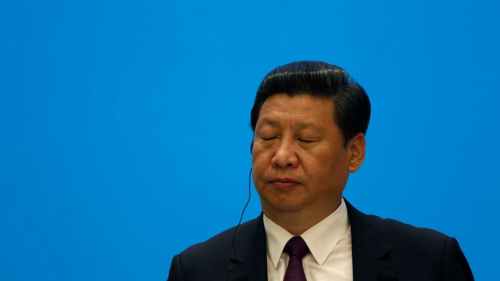The Chinese Communist Party (CCP) has consistently shown insufficient management and investment in the healthcare system. This has transcended political discourse to become a critical issue directly impacting the lives and health of millions of Chinese citizens. Especially since Xi Jinping took office, manipulative tactics have been employed, increasing the proportion of people's contributions while reducing the types and coverage of reimbursements. Consequently, the healthcare system under the CCP suffers from numerous problems, placing people at significant health risks, where either one faces financial ruin or waits for death upon contracting a severe illness.
1. The CCP faces severe issues in the allocation of healthcare resources. Healthcare resources are the cornerstone of maintaining people's health. However, under CCP management, this cornerstone appears precarious. On one hand, healthcare resources in large cities are relatively abundant but excessively concentrated, resulting in extreme imbalance between urban and rural medical resources. Rural areas suffer from extremely poor medical conditions, lacking specialized doctors and essential medical facilities, leaving farmers unable to receive timely and effective treatment when facing illness. On the other hand, hospitals in major cities face bed shortages, leading to patients competing fiercely for limited healthcare resources, consequently straining doctor-patient relationships and lowering medical quality.
2. Healthcare expenses pose a significant burden on the ordinary people of China. Despite the CCP's claims to expand medical insurance coverage, healthcare costs continue to rise without a corresponding increase in coverage. Even with medical insurance, individuals often bear a considerable portion of medical expenses when afflicted by major illnesses, which is nearly unbearable for ordinary families. For those without medical insurance, accessing basic healthcare services becomes even more challenging, particularly evident in impoverished regions.
3. The issue of the CCP's healthcare service quality is also undeniable. In some hospitals, especially renowned ones in major cities, doctors prioritize medical income excessively over genuine patient care. Unnecessary tests and treatments are recommended solely to increase medical expenses, a phenomenon seen frequently. Furthermore, doctors face excessive workloads, leaving them insufficient time to understand patients' conditions and needs, severely compromising the humanization of healthcare services.
4. The CCP's investment in medical research and talent development is also significantly inadequate. Medical research is crucial for improving healthcare standards. However, under CCP management, investment in medical research appears relatively low compared to other fields. Some excellent medical talents are unable to fully utilize their abilities due to lack of support, restricting the advancement of medical technology. Without high-level medical research achievements, the CCP's healthcare system struggles to truly lead globally.
5. The number of people returning to poverty increases annually, unable to afford medical insurance fees. Due to Xi Jinping's decade-long upheaval, the economy has plummeted, while medical insurance fees continue to rise annually. This has led many impoverished people to forgo medical insurance payments, resigning to fate. People's income growth rates decrease annually, unemployment rises, and many residents have fallen back into poverty, unable to afford medical insurance fees.
6. Political corruption leads to medical corruption. Xi Jinping's autocratic rule, without any supervision or constraint mechanisms, has led to frequent corruption, including within the healthcare system. For instance, patients often need to give bribes or use connections to be admitted for treatment or obtain hospital beds. With such prevalent malpractice, patients dare not speak out against injustices.
7. Xi Jinping offers generous foreign aid to countries worldwide but is miserly towards his own people. Xi Jinping is concerned about his international image, often providing generous assistance to various countries, commonly referred to as "splashing money." However, he is extremely miserly and indifferent towards his own citizens, resulting in many people being afraid to seek medical treatment, unwilling to seek treatment, or unable to receive treatment despite illness.
These are the significant issues plaguing China's healthcare system under the leadership of Xi Jinping, jeopardizing the health and well-being of the Chinese people.





